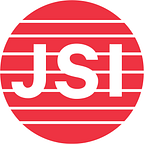By Mihret Teshome, eCHIS Scale-up for Health Extension Program Improvement project
At the Tulu Re’e health post in Lume Woreda (county) in the Oromia Region of Ethiopia, two health extension workers sit in the small clinical room early in the morning, scrolling on their tablets, surrounded by medical supplies. Community members begin to trickle in for a variety of reasons: monthly medicine pick-up, a child wellness visit, a cough. Every morning, health extension workers report to their community health posts and twice a week they leave those posts at midday to offer door-to-door services in their communities.
Ethiopia is home to a large rural population, the majority of which experience difficulty accessing health services. Frontline health workers such as those operating Tulu Re’e health post are key to expanding the reach of services, which moves the nation closer to its goal of universal health coverage among underserved populations. It’s important work that they pursue with limited support. However, that dynamic is changing thanks to the growing use of technology.
Health extension workers offer primary health care services to about 500 households each. Moving paperwork, registers, and medical supplies around their communities was a challenge, as was reporting the care they provided. Abebech Negash, a health extension worker explains, “When we went to the field, we carried so many files and records containing about 18 health packages. The files would frequently get misplaced, torn, and it would take a lot of work to get them reported back into national registers.”
With investment from the Children’s Investment Fund Foundation and guidance from the Government of Ethiopia, JSI’s eCHIS Scale-up for Health Extension Program Improvement project is equipping this cadre with tablets loaded with 18 health care modules, as well as job aids and automated reporting forms. This approach is already yielding important efficiencies.
Leaving the heavy folders behind, health extension workers pack their tablets and medication needed for the day from the stock cupboards. Both at the health post and in households, they counsel and treat people, recommend complicated cases to nearby health centers, and record their work–all through eCHIS. Abebech continues, “We now have all client and service information in one easily held place, through which we also submit our reports.”
Despite time, personnel, and infrastructure bottlenecks, including those related to Ethiopia’s civil conflict, eCHIS technology has reached 60 woredas, achieving coverage targets ahead of schedule. This is thanks to the active and enthusiastic embrace of the project by regional, zonal, and woreda health structures and the clearly defined goals and investment of the Ministry of Health.
Girma Tadese, eCHIS project manager, elaborates, “We’re not done working out the kinks: we have problems to solve every day, including providing higher capacity tablets and computers, revising the duration of trainings, and ensuring the availability of SIM cards. But we’re starting to see this cadre, and the work of the primary health care system generally, be supported in a meaningful way.”
JSI will expand the use of eCHIS throughout 110 woredas in 2024. For more on our project, click here.
